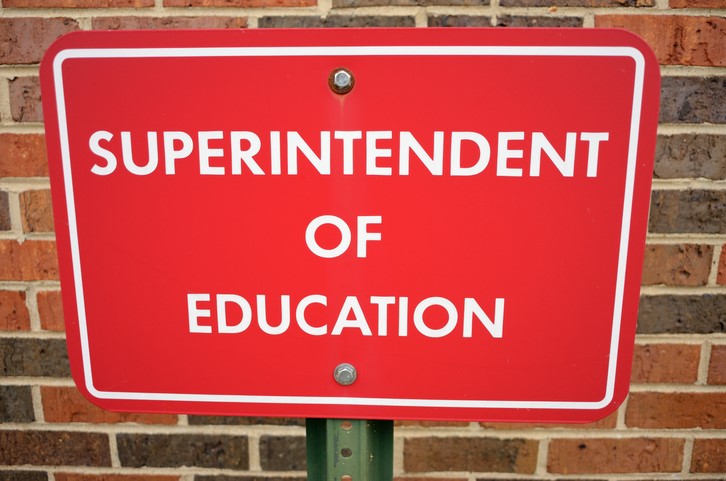“Asymmetric information, also known as information failure, occurs when one party to an economic transaction possesses greater material knowledge than the other party.” — Investopedia
A student shadowing a school superintendent might expect to see a lot of decision-making about teachers and textbooks. He would be astonished to see that superintendents – and the committees that they oversee – also spend significant time shopping. Giving direction to either the business administrator or the purchasing department, the superintendent determines what is needed and supervises the purchasing process from beginning to end. Be it desks for the classroom, software for payroll or glass for replacement windows, a lot of objects go into the school experience. And she must hire more than teachers. Someone has to clean the building, plow the parking lot after a snowstorm and drive the football team to games.
And shopping means negotiating – which makes us anxious. “Am I being foolish?” “Is that a fair price?” “Am I squandering taxpayer money?” One can hardly blame the ancient Athenian who avoided the agora. Maybe what she feared was not so much the open skies as the marketplace. Sellers usually know more than buyers, giving them the upper hand, and buyers know it. Nothing in a School of Education curriculum prepared the superintendent for the terrifying task of negotiation.
How Superintendents Can Leverage BoardDocs Plus
What if the superintendent overseeing the spending of huge sums on a large quantity of widgets actually knew the price other districts around the country had paid for the same thing? The tables would be turned. The superintendent could have the business administrator or purchasing department insist on paying not a penny more than the lowest price that someone else had paid. Market theorists would applaud the perfection of pricing competition, and the superintendent could replace her former anxiety with newfound confidence. She also would expend public monies in the most responsible way possible.
Well, she can. A little-known feature of BoardDocs Plus gives her an insider’s knowledge of what others have paid – be it for snow removal or math software. With the board portal comes privileged access to a treasure trove of other districts’ RFPs, bids, MOUs and contracts. Here’s how it works:
Authorized users of Board Docs Plus can tap into a searchable designated database of K–12 educational records from all the other districts that use the software. Each user continuously files such documents in the folders that they select within BoardDocs Plus. The contents of those folders, in turn, make up a comprehensive – and searchable – database.
Now suppose you’re a superintendent about to sign off on spending thousands of dollars on math software called “Trig Smart!” Without BoardDocs Plus, you might hesitate to finally pull the trigger. A gnawing doubt would haunt you: “What if I’m paying too much?” As a BoardDocs Plus subscriber, though, you can conduct a metasearch of the K–12 database by typing in “Trig Smart!”
Presto! Before you will appear a matrix of thumbnails from officials in Dayton, Redlands, Seattle, Topeka, Des Moines, Honolulu, Bangor, Naperville, New Haven, St. Louis, Boulder, Terre Haute, Austin, Phoenix and Boise. By clicking on any thumbnail, the superintendent can see a full-page RFP, MOU or Purchase Order that contains the phrase “Trig Smart!” It even includes notes from meetings when committees deliberated the purchase.
Now she has the information she needs. What did all of those districts consider before they committed to the purchase? What competing brands did they consider? In what volumes did they purchase it? What price did they pay? She might decide to look more closely at a competing brand that earned high praise, or she might stick to her guns with the reassurance of knowing that other customers were not wallowing in buyer’s remorse. She could certainly demand the lowest price another district paid for a comparable quantity, threaten to walk away if she doesn’t get that price, and mean it.
Secure Sensitive Information
If BoardDocs Plus files sound a little “too” open, fear not. With a crucial feature called “role-based authorization,” the software actually makes it easy to keep confidential information restricted to authorized internal audiences, like the school board or an executive committee. There is no pressing reason, though, to keep pricing information under lock and key. No other BoardDocs customers will ever see the documents designated private – such as those pertaining to salaries, legal counsel or staff health information.
This ability to get a sneak peek at such information has customers raving. The software can pay for itself in cost savings brought about by leveling the playing field in price negotiations. It’s not even the top selling point of the software, which boasts the ability to bring board-level document management to an unlimited number of administrative committees.
Knowledge is power. BoardDocs Plus puts that power at your fingertips.





